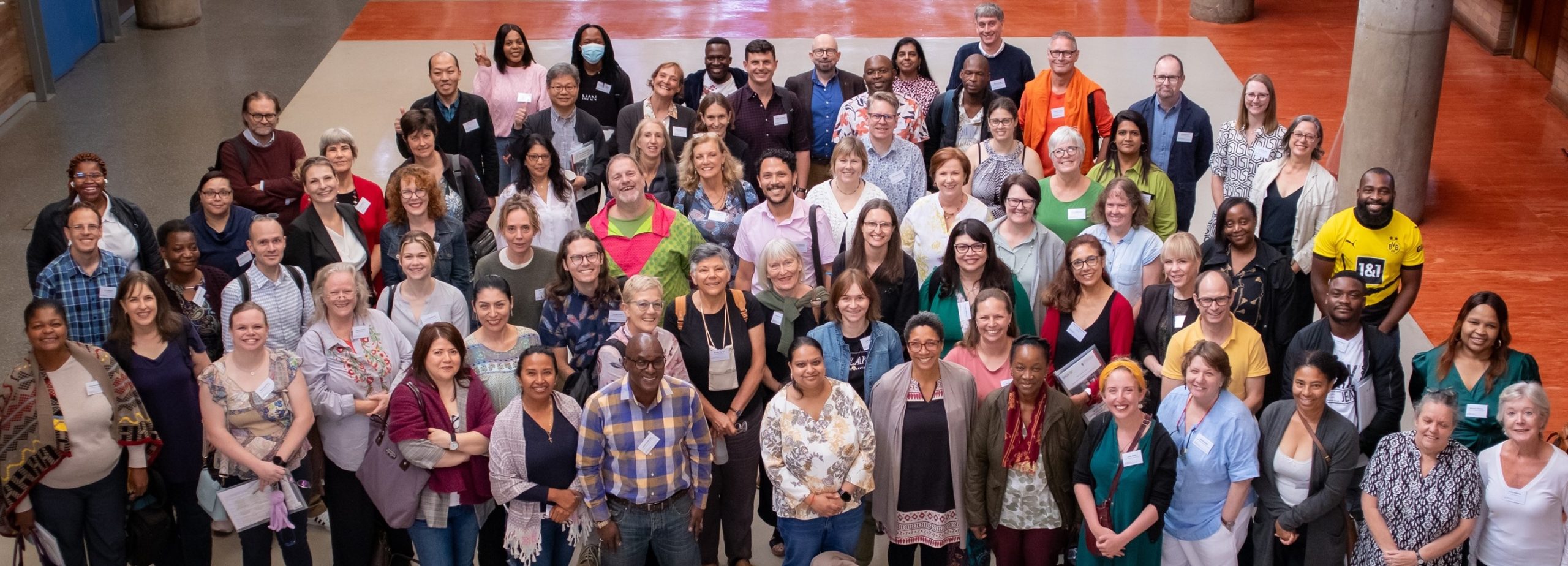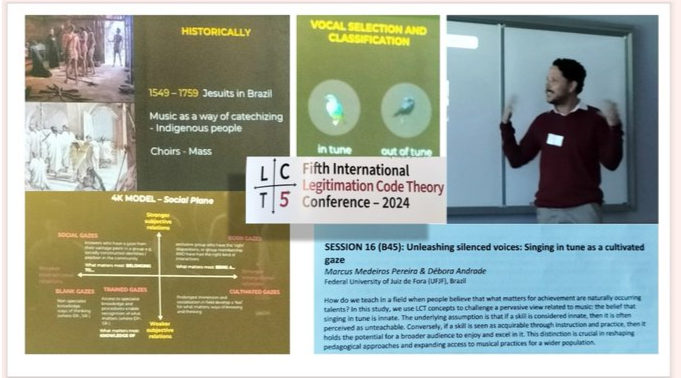In January 2024, I was privileged to attend the Fifth International LCT Conference (LCT5) in Johannesburg, South Africa, at the School of Education, University of the Witwatersrand. I presented three papers with Professor Paul Curzon of Queen Mary University of London, and our trip was funded through Paul’s ESPRC widening participation grant. Paul and I have been working with Professor Karl Maton of Sydney University for over seven years on using LCT theory in computer science education, and to great effect!

What is LCT?
LCT is Legitimation Code Theory, an overarching sociological framework that has been particularly used in educational research. LCT has dimensions and data analysis tools that reveal “the rules of the game” of any sociological interaction. For example, Semantic Density is used to reveal the complexity of concepts, and Semantic Gravity is the degree to which contexts are used. At the conference, international researchers from a breathtakingly wide range of disciplines used LCT as a lens to analyse their research contexts. LCT provided the common language we could all use to start appreciating the complexities of researched topics, from judicial judgments in China to medical care in Sweden.
How does this relate to computer science?
At the conference, Paul and I presented on the use of two LCT dimensions that we have been using in our computer science education research, Semantics and Autonomy, and we also presented about the fantastic research to practice success we have seen in introducing semantic waves to classroom computer science education in England.
Paul, Karl Maton, and I have published several studies about computing and semantic waves. Semantic waves is a simplified term to describe a particular knowledge-building pattern revealed by the Semantics framework. We have published about primary classroom unplugged activities that teach about algorithms, knowledge building in teaching about variables through the “variables are like a box” analogy and using magic to teach about algorithms. At the Raspberry Pi Computing Education Research Centre, Karl and I have also published on constructing explanations for wrong-answer feedback on database and SQL multiple-choice-questions using Semantics.
At the LCT5 conference, Paul and I presented new work on using Autonomy to investigate teaching more than one subject in one lesson, computer science and magic, exploring how knowledge building in each topic could be revealed and potentially improved. We think this avenue of research may be particularly useful for investigating cross-curricula teaching in computer science.
The 2024 LCT conference
One hundred thirty delegates from 17 countries attended the four-day, four-track conference, in South Africa, with 64 papers presented. Each day began with a ‘power-up’ lecture by Professor Karl Maton, creator of LCT, providing intensive professional development on LCT and the deep analytical ways of thinking made possible using the LCT framework. I was particularly keen to learn about Constellations, a generic diagramming method for data analysis, and Specialisation, a way to represent knowledge and the knower. I have already started to think about how I can use these aspects of LCT in our research on teaching and learning about AI technologies and culturally responsive teaching in computing.
My personal LCT conference highlight
There were so many fascinating and useful sessions that it’s hard to pick one to highlight. But one presentation particularly resonated with our work on culturally relevant practice called: “Unleashing silenced voiced: singing in tune as a cultivated gaze”. This session was presented by Marcus Medeiros Pereira, who asked how the teaching of singing for ALL is made legitimate in Brazilian schools, as anyone can be taught to sing. Marcus and his colleagues have used LCT Specialisation to highlight what knowledge is taught and who legitimises that knowledge, revealing the power held by certain groups and historical inertia. I found direct parallel questions with who legitimises computer science and why programming is seen as only for a select group of learners rather than being championed for and taught to ALL. I saw how the Specialisation dimension of LCT could be used to more clearly reveal “the rules of the game” for teaching any subject. Specialisation is now on my list of theories to explore in computer science.

LCT5 was a unique meeting of international researchers who could use a common language, LCT, to discuss and better understand each other’s work. I am excited to share this common language more within the computer science education research community, as it has much to contribute to our analysis of our field and reveal the hidden rules of the computer science learning game.
You can find out more about LCT or read our research using Semantics.
We would love to stay in touch with you! If you’d like to receive an occasional newsletter by email, please do sign up for our mailing list!